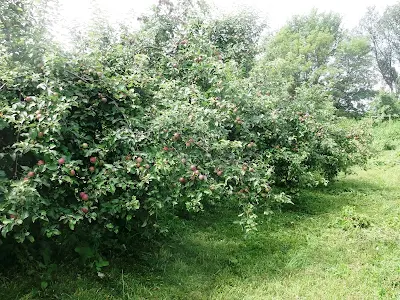Sometimes family asks me "How do you decide what to keep and what to get rid of?"
My stock answer is, "I keep the plants that pay their rent and evict the rest."
I am not sure they always understand what I am trying to say.
Price Discovery
Charles Hugh Smith wrote a very clear essay on bubbles. To summarize, the foundational "price" for any asset is based on the net return and a defensible discounting rate. Any price in excess of that is speculation based on the expectation of
- Increasing rates of return (i.e., inflation)
- Accelerating rates of return (i.e., increasing rate of inflation)
- An increasingly distorted discounting rate (i.e., interest rates...how much would you have to invest in bonds to match that net income)
- An expectation that the discounting rate will see even greater rates of distortions in the future
- An ample supply of Greater Fools.
Price discovery presents a puzzle. Is there even an organic rental market for 4000 square foot, Ikea filled homes 70 miles from job markets? And then, what is a proper discounting rate? And what is a realistic depreciation rate given that some of the "appeal" of the home is based on factors that will become obsolete long before their functionality ceases?
Back to food bearing plants
What "rent" do I expect from my food bearing plants?
The devil is in the details. Just as the "rent" of a house is based on how well it integrates with local factors..... The "rent" for a plant involves how well it fits with my management methods, local consumers and with local weather conditions.
Wine grapes were evicted because my management involves herbicide application and very minimal insecticide applications. Grapes are very sensitive to herbicides so weed control took me out of my management sweet-spot. In short, it did not get done. Grapes are also a prime target for Japanese Beetles. I was not religious about spraying them. Consequently, yields were almost non-existent.
 |
| Liberty on semi-dwarf rootstock will easily exceed 160 pounds per tree year-after-year-after-year. |
The vineyard was next to the orchard. It was a simple decision to extend the orchard. My expectation is an incremental 1600 pounds (700 kg) of apples and pears with no increase in management complexity.
In the case of Pawpaws, I could not find anybody who really enjoyed eating more than one. And they are as perishable as ripe bananas. The row of Pawpaws has been replaced with a row of hazelnuts. Nuts keep. Many people like hazelnuts.
Gratuitous garden pictures
 |
| Root cellar garden planted July 6. From right-to-left carrots (not up) two rows of beets, a row of rutabagas, a row of Korean radishes. |
 |
| Winter Long Keeping (aka, Lutz Green Leaf) beet. Open pollinated. |
 |
| Red Ace hybrid beet. A little bit more vigorous germinating than the Winter Long Keeper. |
 |
| Rutabaga. |
 |
| Radishes. |
Potato bug update
The bird feeder has been attracting birds. The raccoons also found it. They pull it down. I put it back up. It does seem to help reduce the number of potato beetles. The bird feeder is definitely paying its rent.

I'm with you on the pawpaws, pal. I can eat one...and that's enough for the next year or two. Have 4 or 5 planted in a boggy spot along the driveway, with the mayhaws, as much as an ornamental for my boss(wife) to mow around as anything. No dedicating any premium space to them.
ReplyDeleteNo-spry anything here. Probably ought to pull out all but a handful of the remaining apple trees - no one eats them except the deer, and they look pretty crummy - and really make mowing difficult.
Peaches have finally died out...one remaining plum from our original plantings, never has done anything; the thicket of native Chickasaw plums provide all I can use most years.
Truth be told, I'd probably be way ahead of the game just bulldozing the whole orchard and starting over on a much smaller scale. Such are the late-in-life realizations of an obsessive fruit collector...
"Rent" is in the eye of the beholder, or land owner... And what you did makes sense in the long term. Plus, I don't think you'd get much good wine off those grapes... :-)
ReplyDeleteToo cool. And great outlook on the plants and "rent".
ReplyDelete